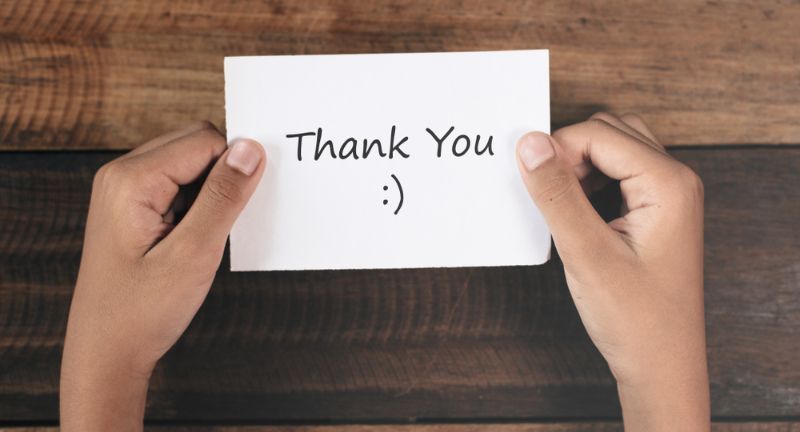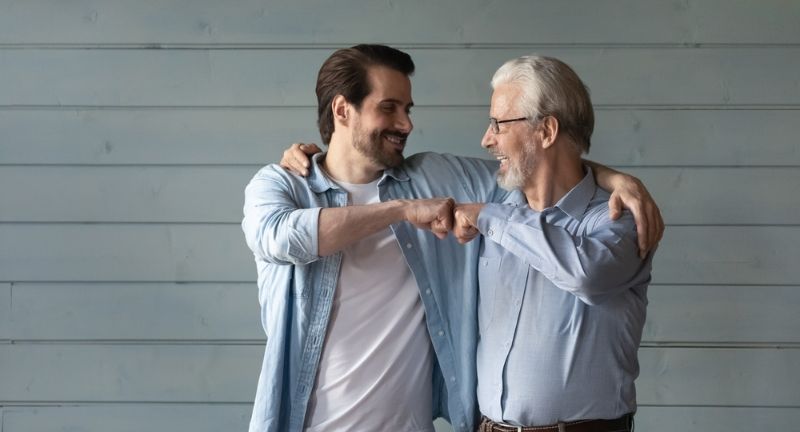In today’s fast-paced, technology-driven world, many traditional social skills are becoming less common. While advancements in communication have brought convenience, they’ve also contributed to a decline in face-to-face interactions and basic etiquette. Reviving these forgotten skills can strengthen relationships and build deeper connections. Here are 22 valuable social skills that this generation has totally forgotten.
The Art of Active Listening

Shutterstock
In the age of smartphones, active listening has become a rare skill. People often multitask or check their devices during conversations, which can make others feel unheard. Giving someone your full attention shows respect and strengthens connections. It’s a simple yet powerful way to improve relationships.
Making Eye Contact

Shutterstock
Eye contact is essential for building trust and rapport, but it’s often overlooked in digital interactions. Many people avoid eye contact out of shyness or distraction, but doing so can make conversations feel disconnected. Practicing intentional eye contact helps convey confidence and attentiveness.
Writing Thank-You Notes

Shutterstock
The tradition of writing thank-you notes has largely been replaced by quick texts or emails. However, a handwritten note adds a personal touch that shows genuine appreciation. Taking the time to write one leaves a lasting impression. It’s a small gesture that makes a big difference.
Offering a Firm Handshake

Shutterstock
A firm handshake has long been a symbol of confidence and professionalism. In an increasingly touch-free world, this classic greeting is becoming less common. However, mastering a good handshake can leave a strong first impression. It’s a timeless skill worth preserving.
Starting Small Talk

Shutterstock
Many people now avoid small talk, opting to focus on their devices instead. While it may seem trivial, small talk helps break the ice and build connections. Whether it’s chatting with a cashier or a colleague, this skill fosters warmth and approachability. It’s a valuable tool for socializing.
Remembering Names

Shutterstock
In today’s busy world, it’s easy to forget someone’s name after an introduction. Remembering and using names during conversations makes people feel valued and respected. Simple tricks, like repeating the name or associating it with a visual cue, can help. This skill is essential for building lasting relationships.
Extending Genuine Compliments

Shutterstock
Compliments have become rare, with many opting for likes or emojis instead of verbal praise. Offering a sincere compliment boosts confidence and brightens someone’s day. Whether it’s about someone’s work, appearance, or effort, genuine praise fosters positive connections. It’s a skill that should never go out of style.
Being Punctual

Shutterstock
Punctuality is a sign of respect for other people’s time, but it’s increasingly overlooked in casual settings. Arriving late can come across as inconsiderate or unprofessional. Making an effort to be on time shows reliability and thoughtfulness. It’s a simple habit that leaves a positive impression.
Resolving Conflicts Face-to-Face

Shutterstock
In the digital age, many people prefer to address conflicts via text or email, which can lead to miscommunication. Resolving issues face-to-face allows for clearer communication and emotional understanding. It’s a valuable skill that fosters healthier relationships. Direct conversations build trust and resolve tensions more effectively.
Holding the Door Open

Shutterstock
Simple acts of kindness, like holding the door open, are becoming less common. This gesture shows thoughtfulness and consideration for others, regardless of age or gender. It’s an easy way to brighten someone’s day and demonstrate good manners. Small courtesies make a big difference in social interactions.
Offering a Warm Greeting

Shutterstock
Starting interactions with a warm greeting, like a friendly “hello” or “good morning,” sets a positive tone. Many people have replaced these simple gestures with a nod or silence, especially in rushed settings. Acknowledging others with a smile and a greeting fosters connection and goodwill. It’s an effortless way to brighten someone’s day.
Mastering the Art of Apologizing

Shutterstock
In an era of defensive behavior, the ability to offer a genuine apology is becoming rare. Admitting mistakes and expressing remorse shows maturity and respect for others. A heartfelt “I’m sorry” can mend relationships and build trust. This social skill is vital for resolving conflicts and maintaining harmony.
Respecting Personal Space

Shutterstock
As social norms shift, the concept of personal space is often overlooked. Crowding someone or interrupting their downtime can come across as inconsiderate. Being mindful of boundaries shows respect and consideration for others. This skill fosters comfort and ease in any social setting.
Being Fully Present

Shutterstock
With constant notifications and distractions, being fully present in a conversation is increasingly rare. Putting away your phone and focusing on the moment shows attentiveness and care. This skill strengthens relationships and demonstrates respect for the other person. True connection happens when you’re fully engaged.
Practicing Patience

Shutterstock
In a world of instant gratification, patience is becoming a lost art. Whether it’s waiting in line or listening to someone’s story, showing patience fosters kindness and understanding. Taking a moment to slow down creates a more respectful and empathetic atmosphere. Patience is a timeless virtue in social interactions.
Offering Help Without Being Asked

Shutterstock
Recognizing when someone needs assistance and offering help without waiting to be asked is a skill that builds goodwill. From carrying groceries to providing emotional support, small acts of kindness make a big difference. This proactive approach shows empathy and thoughtfulness.
Sharing the Spotlight

Shutterstock
In group settings, dominating the conversation or taking all the credit can alienate others. Sharing the spotlight by giving others a chance to speak or recognizing their contributions fosters inclusivity. This skill strengthens teamwork and builds mutual respect. True confidence comes from uplifting others.
Learning to Disagree Politely

Shutterstock
In today’s polarized world, disagreements often turn heated or personal. The ability to express differing opinions calmly and respectfully is a valuable skill. Focusing on facts rather than emotions fosters constructive dialogue. Agreeing to disagree without animosity is key to maintaining positive relationships.
Remembering Special Occasions

Shutterstock
Remembering birthdays, anniversaries, or other special occasions shows care and attention to detail. While social media reminders help, a personal touch, like a phone call or card, makes the effort more meaningful. Celebrating others’ milestones strengthens bonds and spreads joy.
Giving Undivided Attention

Shutterstock
Divided attention during conversations, often due to digital distractions, can make others feel unimportant. Giving someone your full focus conveys respect and deepens the connection. This simple skill fosters trust and shows genuine interest in the person you’re speaking with. Undivided attention is a priceless social skill.
Following Through on Promises

Shutterstock
Failing to keep promises, no matter how small, can harm trust and relationships. Following through on your commitments shows reliability and integrity. Whether it’s meeting a deadline or attending a scheduled event, keeping your word strengthens bonds. This skill is essential for building trust and credibility.
Being Mindful of Tone

Shutterstock
Your tone of voice can significantly impact how your words are received. A dismissive or condescending tone can create misunderstandings or hurt feelings. Practicing mindfulness in your tone helps convey respect and sincerity. It’s a subtle yet impactful social skill that enhances communication.
Conclusion

Shutterstock
Social skills are the foundation of meaningful interactions and strong relationships. While some of these skills may be fading in today’s fast-paced world, they are more important than ever for fostering connection and understanding. By reviving these forgotten habits, we can create a more thoughtful and empathetic society. The effort to master these skills is well worth it.























































